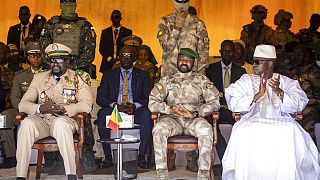The Morning Call
Africa’s richest man, Aliko Dangote grabbed headlines all over the world when he revealed over the weekend that he one time withdrew $10 million in cash, and took it to his home, just to be sure of his wealth.
Dangote, who was attending the 2019 Mo Ibrahim Foundation’s Governance Week celebrations in Ivory Coast, also said he however did not have even one dollar in his pockets, at the time of the interview.
While it may not be unusual for Dangote, who is worth over $10 billion, to have assistants take care of any transactions, hence eliminating the need for carrying cash, the revelation also demonstrated the changes in attitudes and behaviour towards cash.
Technology, and the rise of the digital economy, are significant factors that can explain how Dangote transformed from someone who carried millions of dollars in the boot of his car, to a cashless billionaire.
Dangote and indeed many of the delegates do not need cash to pay for air tickets, accommodation at hotels, cabs to the venue, airtime to power direct calls and mobile data, food at the restaurants and so much. Today, more than ever, it is possible to live a cashless life, thanks to services like mobile money, debit and credit cards.
While cash is still king, with up to 95% of retail transactions using cash in Africa and the Middle East, the future of cashless is promising. Mobile money transactions in sub-Saharan Africa could exceed $1.3 billion by 2019, according to data by the consulting firm Frost & Sullivan.
To further explore the role technology is playing in driving this change, we spoke to Allan Rwakatungu, the CEO and Founder of Xente Tech, a Payments, Financial Services and e-Commerce company, that is championing the cashless movement in Uganda, Kenya, Tanzania, Nigeria and South Africa.
Why is it important to work towards a Cashless Africa?
When you are paying cashless, as a consumer, you have real convenience, because you can pay from wherever you are, whenever you need a product or service. So, for the consumer, there is really convenience. For business, it is also more efficient in terms of driving costs lower, because cash is more expensive; you need to count it, you need to store it, you need to take it to the bank, people steal it.
What will it take to dethrone cash?
When people realise the benefits. Mobile money did not take off overnight, it took a lot of work to get people to trust the system, but once people realised the value and they started trusting the system, it took off very quickly. So, we believe that in other instances, when people realise the value, there will be adoption.
What specific steps would would you recommend are taken by technology companies to recruit more people into the cashless movement?
If you want people to pay using mobile money in a restaurant, and it costs them a little bit extra to make the transaction, it doesn’t much how convenient it is, they are not going to adopt it. So, first it has to be the same price if not cheaper than using cash. And there has to be even more value by using digital payments, for example could you give them rewards, could you give them discounts.





![Africanews celebrates fifth anniversary [Night Shift]](https://static.euronews.com/articles/stories/05/57/72/74/320x180_cmsv2_6b1e7837-a917-526b-b3b4-4582a3f8bcac-5577274.jpg)
![Africanews celebrates fifth anniversary [Morning Call]](https://static.euronews.com/articles/stories/05/57/72/70/320x180_cmsv2_a6c857d4-80a3-510a-88e6-f060ea8d9ee9-5577270.jpg)






02:26
Kenya: Virtual reality used to teach students about plastic pollution
02:19
Egypt's pyramid of Cheops explored in virtual reality in Paris
Go to video
NFT of Mandela's arrest warrant up for grabs
Go to video
Ugandan PM addresses virtual summit from roadside
02:16
In Belgian museum, a virtual reality tour across DRC's capital with 'Kinshasa Now'
Go to video
A safari experience through "VR" technology